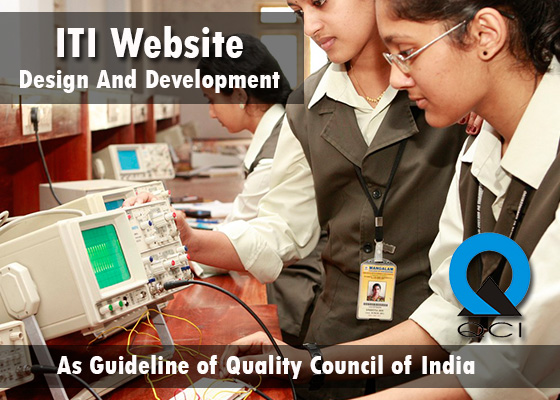MGPE-014: Gandhi: Ecology and Sustainable Development By Dr. Shubhangi Vaidya |
This course MGPE-014, Gandhi: Ecology And Sustainable Development aims to impart in-depth knowledge and nuances of the sustenance of life and perpetuity on our Mother Earth. The major focus of the course is to examine the viability and pragmatic relevance of Gandhian vision and mission of human sustainability with eco-friendly approach. It also emphasizes the significance of the Wisdom Tradition of India from where Gandhi ever gained insight, intellect and strength for his life mission with the objective of shedding new light in resolving the human challenges. In this course, we will try to examine whether Gandhi is a human ecologist or not. What are the main elements of human ecology and sustainable development? We will try to explore the major influences, both Eastern and Western sources, on Gandhi’s environmental thought. Gandhi’s ideas on the environment emerged from his concept of an alternative economy and polity that he envisaged for the country. We will also critically evaluate the influence of Gandhi on the various environmental movements in India and abroad as well as reiterates the main elements of Gandhian ecological vision. Course credit-4
Course layout
|
Week-1 |
Unit-1 Changing Perspectives on Ecology and Development |
|
Week-2 |
Unit-2 Deep Ecology: Respect and veneration for Nature |
|
Week-3 |
Unit-3 Critique of Contemporary Development Unit-4 Gandhian Approach to Development |
|
Week-4 |
Unit-5 Gandhi's Views on Humankind and Earth Unit-6 Gandhi and Human Ecology Unit-7 Gandhi on Conservation of Natural Resources |
|
Week-5 |
Unit-8 Gandhi's Village: An Ideal Ecological Unit Unit-15 Gram Swaraj and Ecological Development (Climate Change) |
|
Week-6 |
Unit-9 Spiritual Foundations of Gandhian Development |
|
Week-7 |
Unit-10 Gandhian Lifestyle and Livelihoods |
|
Week-8 |
Unit-11 Institutional Dimensions of Development |
|
Week-9 |
Unit-12 Antyodaya to Sarvodaya |
|
Week-10 |
Unit-13 Gandhi's Ashrams: Seed Beds of Ecological Development |
|
Week-11 |
Unit-14 Education and Green Initiatives |
|
Week-12 |
Unit-16 Case Studies (Water Harvesting in Avid, Rajasthan for Environmental Management, Rale Gaon Sidhi) |
Books and references
IGNOU Study Material at www.egyankosh.ac.in
https://www.mkgandhi.org/ebks/gandhiebooks.htm
Instructor bio

Dr. Shubhangi Vaidya
Indira Gandhi National Open University (IGNOU), New Delhi
Dr. Shubhangi Vaidya, Associate Professor, is a Sociologist by training, and an alumna of the Centre for the Study of Social Systems, School of Social Sciences, Jawaharlal Nehru University, Delhi. She has nearly two decades of experience in Open and Distance Learning, and has worked in both, the Regional Services Division as well as the School of Interdisciplinary and Trans-disciplinary Studies, IGNOU. She has contributed to programme development in Sociology, Anthropology and Women’s and Gender Studies. She is currently engaged in developing interdisciplinary programmes and guiding research in the School of Interdisciplinary and Trans-disciplinary Studies. Her areas of interest include disability studies, gender studies, labour and development and diaspora studies. She has published book chapters and research papers in the interdisciplinary areas of disability and gender, particularly autism, and is the author of two books, Autism and the Family in Urban India: Looking Back, Looking Forward (Springer, 2016) and Embodying Motherhood: Perspectives from Contemporary India (Sage-Yoda Press, 2016), co-authored with Anu Aneja. Her recent publication is titled ‘(Dis)ability, Gender and Identity: Crossing Boundaries’ in the volumeWomen’s and Gender Studies in India: Crossings edited by Anu Aneja ( Routledge, 2019).
Summary
| Course Status : | Upcoming |
| Course Type : | Elective |
| Duration : | 12 weeks |
| Start Date : | 01 Sep 2021 |
| End Date : | |
| Exam Date : | |
| Category : |
|
| Credit Points : | 4 |
| Level : | Postgraduate |
ITI Student Resume Portal
रिज्यूम पोर्टल का मुख्य उद्देश्य योग्य छात्रों की जानकारी सार्वजनिक पटल पर लाने की है जिससे जिन्हें आवश्यकता हो वह अपने सुविधा अनुसार छात्रों का चयन कर सकते हैं

